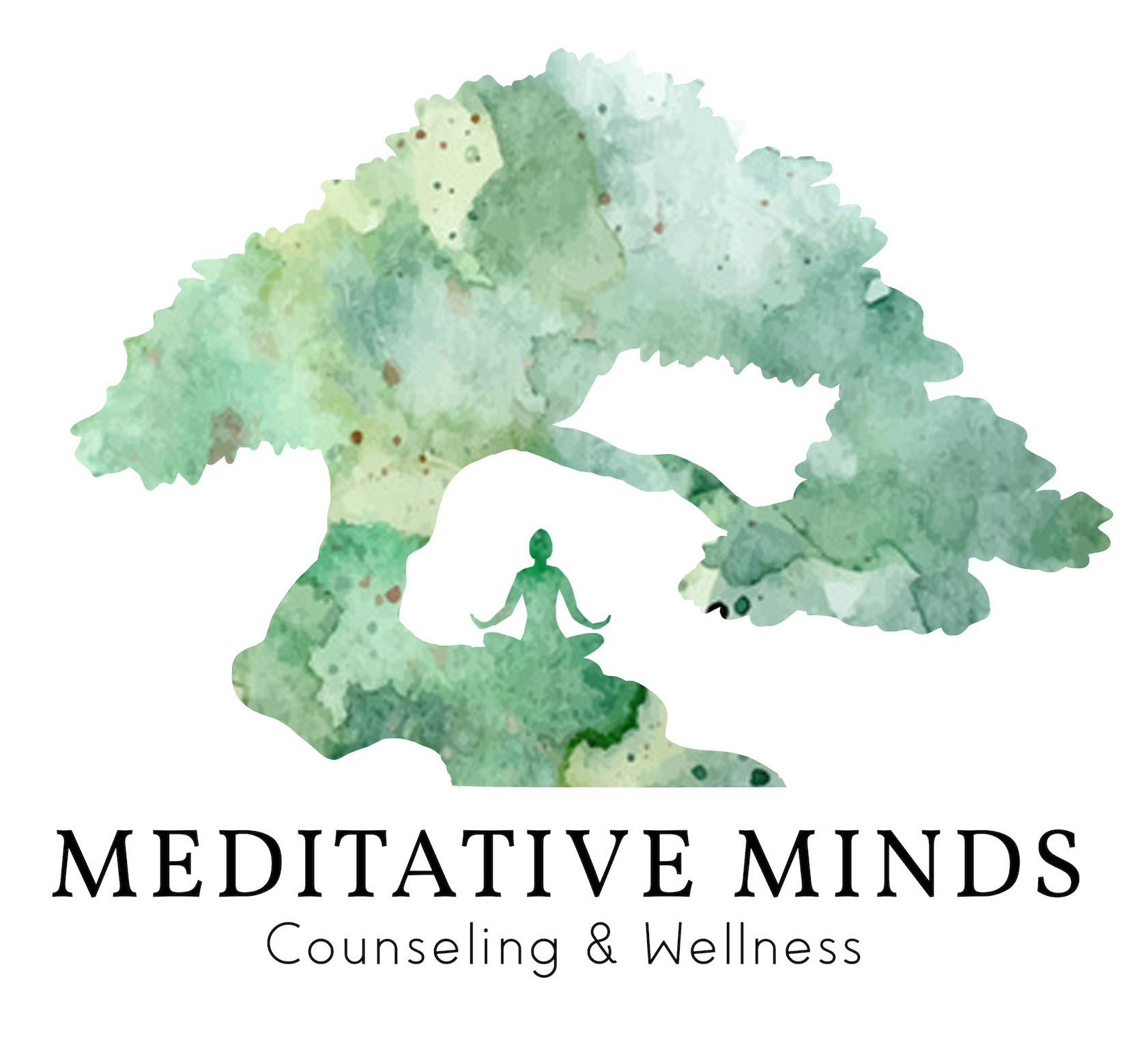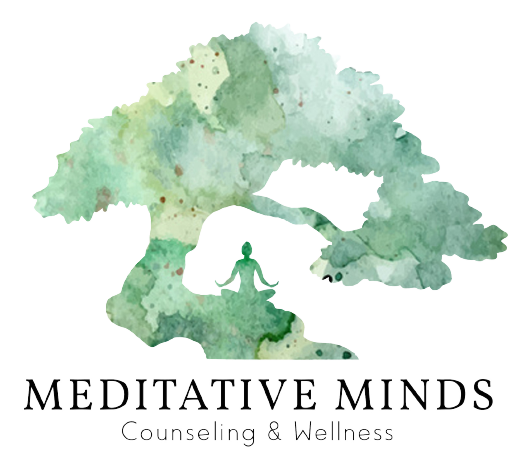Are you and your partner experiencing communication difficulties in your relationship? Is mutual understanding always out of reach, despite your best efforts? You’re not alone. Many couples, just like yourselves, face similar challenges, and this is where couples therapy for communication issues can make a fundamental difference.
Understanding the Importance of Communication in Relationships
Effective communication underpins successful relationships. With it comes a deeper understanding, empathy, and ultimately, a stronger bond. Yet, achieving this is not always straightforward. Communication can derail due to various issues, such as differing communication styles, emotional patterns, or unresolved disagreements. The results can be frustrating, leaving you and your partner feeling unheard and misunderstood.
The Role of Couples Therapy in Addressing Communication Issues
At Meditative Minds Counseling, we believe the place to start your journey towards improved communication is understanding and acknowledging that displeasure. Recognizing there’s an issue that needs to be addressed is the first crucial step towards recovery and resolution.
| Key Points | |
|---|---|
| What? | Couples therapy is an effective tool to improve communication issues in a relationship. |
| Why? | It helps uncover emotional needs, tailors communication strategies to each partner’s style, and promotes transparency, vulnerability, and trust. |
| Who? | Meditative Minds Counseling can guide and support you through your journey of transforming communication in your relationship. |

Through our range of couples therapy techniques, we aim to navigate the challenges that stem from poor communication. Our holistic approach addresses underlying emotional patterns, the significance of trust, and the importance of understanding different communication styles. By the end of this journey, our hope is to guide you back to robust, healthy communication, fostering an improved connection in your relationship.
The Root Cause of Communication Problems in Relationships
Communication issues are the most common cause of distress in relationships. They often stem from underlying emotional patterns, issues of trust and vulnerability, and different communication styles. At Meditative Minds Counseling, we delve into these concerns to help couples understand and overcome their communication issues.
Emotional Patterns and Their Impact on Communication
Emotional patterns, often shaped by past experiences, can significantly impact our ability to communicate effectively. For instance, a simple remark from a partner can trigger an emotional response linked to a past experience, causing a reaction that may seem exaggerated or unrelated to the current situation. This emotional baggage can cause a breakdown in communication, leading to misunderstandings and conflicts. In our couples therapy for communication issues, we help partners identify these patterns and learn how to communicate effectively without letting past emotional patterns dictate their responses.
The Role of Trust and Vulnerability in Communication
Trust and vulnerability play a crucial role in effective communication. When trust is compromised, it can lead to defensive communication styles, misunderstandings, and emotional distance. On the other hand, when partners feel safe and vulnerable with each other, they are more likely to communicate openly and honestly, leading to a deeper understanding and stronger connection. At Meditative Minds Counseling, we help couples rebuild trust, encouraging transparency and vulnerability to foster open and honest dialogue.
The Four Communication Styles that Predict Relationship Failure
John Gottman, a renowned relationship expert, identified four communication styles – criticism, contempt, defensiveness, and stonewalling – that significantly indicate a relationship heading towards failure. These styles, commonly referred to as the “Four Horsemen of the Apocalypse,” are often the result of unresolved emotional patterns and trust issues. They create a negative communication environment, leading to a deterioration of the relationship. We focus on helping couples identify these negative patterns in their communication and replace them with constructive ones.
Through our couples therapy, we aim to help couples break free from these destructive communication patterns and create a healthier, more supportive communication environment. We believe that understanding and changing these patterns is a crucial step in resolving communication issues and improving the overall relationship. So, if you’re facing communication issues in your relationship, reach out to us at Meditative Minds Counseling. We’re here to help you navigate these challenges and strengthen your connection.
How Couples Therapy Can Help Improve Communication
When communication becomes a battleground in a relationship, it doesn’t mean the end is inevitable. It simply means that you need to find a new, healthier way to communicate, and that’s where couples therapy for communication issues comes in.
Uncovering Emotional Needs through Therapy
At the core of most communication problems are unmet emotional needs. These needs could be rooted in past experiences, insecurities, or simply a lack of understanding of what your partner truly needs. During our sessions at Meditative Minds Counseling, we focus on uncovering these emotional needs.
For instance, let’s take the example of Mark and Kate from our research. Kate expressed fear about potential conflicts after their baby’s arrival. Mark, misconstruing this as criticism, reacted defensively. This is a classic example of a communication breakdown due to unmet emotional needs. In couples therapy, we would help Mark and Kate understand that beneath their words were needs for reassurance and appreciation.
Tailoring Communication Strategies to Each Partner’s Style
Everyone has their unique way of communicating and processing information. Some people need time to think and reflect before they respond, while others prefer immediate resolution. Understanding and respecting these differences is crucial to healthy communication.
In the case of John and Jill from our research, couples therapy would help them recognize their differing communication styles. John, who needs time to digest things, and Jill, who seeks quick resolution, could learn to respect and accommodate each other’s styles. This understanding can significantly decrease conflict and foster connection.
The Role of Non-Verbal Communication in Relationships
Non-verbal cues, such as tone of voice, body language, and facial expressions, often speak louder than words. According to a ScienceDaily study, the tone of voice can reveal more about a person’s feelings than the actual words used.
At Meditative Minds Counseling, we emphasize the importance of understanding and correctly interpreting non-verbal cues. We help couples learn to tune into these cues and respond to them appropriately, fostering a deeper connection and understanding.
In conclusion, couples therapy can be a powerful tool in resolving communication issues and strengthening relationships. By uncovering emotional needs, tailoring communication strategies to each partner’s style, and understanding non-verbal cues, you can create a relationship that is based on mutual understanding and respect. If you’re struggling with communication issues, don’t hesitate to reach out to us at Meditative Minds Counseling. We’re here to support you in your journey towards a healthier, happier relationship.
Practical Techniques for Improving Communication in Relationships
In couples therapy, we employ numerous practical techniques that can significantly improve communication between partners. These exercises are designed to help you and your partner understand each other’s perspective better and foster a deeper emotional connection. Let’s explore some of these tools in detail.
The 40-20-40 Exercise for Effective Communication
A popular tool we utilize in couples therapy is the 40-20-40 exercise. This structured process is designed to ensure that each partner gets an equal opportunity to express their feelings without interruption. The exercise is divided into three parts – 40% of the time is allocated to one partner, another 40% to the other partner, and the remaining 20% is for discussing the relationship. The aim is to avoid accusatory statements and promote understanding.
The Use of ‘I’ Statements in Communication
Another crucial method to improve communication in relationships is the use of ‘I’ statements. Instead of using ‘you’ which may sound accusatory, ‘I’ statements focus on expressing your feelings and needs. For instance, instead of saying “You never listen to me”, you can say “I feel ignored when I talk about my day”. Studies show that ‘I’ statements reduce the likelihood of discussions escalating into confrontations, helping to deepen connections in a relationship.
The Importance of Active Listening and Self-Reflection
Active listening is another essential component of effective communication. This is not just about hearing what your partner is saying, but understanding the underlying emotions and messages. Active listening involves maintaining eye contact, nodding when appropriate, and providing feedback through verbal and non-verbal cues.
Moreover, self-reflection is a powerful tool which allows you to understand your own feelings and reactions better. By reflecting on your thoughts and emotions, you’re able to communicate them more clearly to your partner, fostering mutual understanding.
Incorporating these practical techniques into your communication can significantly transform your relationship. At Meditative Minds Counseling, we guide couples in applying these tools effectively to address communication issues, promoting healthier and happier relationships.
The Imago Dialogue: A Therapeutic Approach to Transforming Conflicts
If your attempts at communication in your relationship often escalate into arguments or leave you feeling unheard, it might be time to consider a unique therapeutic approach known as the Imago Dialogue.
Understanding the Imago Dialogue Approach
The Imago Dialogue is a structured method of communication that fosters understanding, empathy, and connection between partners. Developed by Harville Hendrix and Helen LaKelly Hunt, the Imago Dialogue focuses on transforming the way couples communicate, moving away from blame and defensiveness towards understanding and empathy.
The process of Imago Dialogue involves three key steps: mirroring, validation, and empathy. In the mirroring phase, one partner shares their thoughts or feelings, and the other partner reflects back what they’ve heard, ensuring that the message is accurately received. In the validation phase, the listening partner acknowledges the validity of the speaking partner’s perspective, even if they don’t necessarily agree with it. Finally, in the empathy phase, the listening partner attempts to understand and empathize with the feelings of the speaking partner.
How the Imago Dialogue Can Help Improve Communication
By guiding couples through this process, the Imago Dialogue transforms conflicts into opportunities for connection and growth. It helps partners move away from blame and defensiveness, promoting understanding and empathy instead.
At Meditative Minds Counseling, we understand the power of the Imago Dialogue approach in couples therapy for communication issues. By creating a safe and comfortable environment for communication, we help partners feel heard and validated, fostering a deeper connection between them.
In the Imago Dialogue approach, the respect and understanding built throughout the process often lead to a stronger bond and improved communication in the relationship. This method encourages partners to communicate their needs and feelings in a way that promotes understanding rather than conflict.
Incorporating the Imago Dialogue into our couples therapy sessions, we help partners understand their communication patterns, uncover their emotional needs, and learn effective strategies for addressing communication issues. Through this process, couples can transform their conflicts into opportunities for connection and growth.
In conclusion, the Imago Dialogue is a powerful tool in couples therapy for communication issues. By transforming the way couples communicate, it promotes understanding, empathy, and connection, helping couples build happier and healthier relationships.
The Role of Connection in Sustaining a Relationship
While we often focus on communication as the cornerstone of a successful relationship, it’s important to highlight that connection plays an equally critical, if not more significant, role. It’s the sense of togetherness and intimacy that makes couples feel safe, loved, and valued in their relationships. Even with the best communication skills, without a strong emotional bond, couples may find it challenging to resolve conflicts and misunderstandings.
Why Connection is More Important than Communication
Connection and communication are two sides of the same coin. While clear and effective communication is vital in conveying feelings and thoughts, it’s the emotional connection that underpins understanding and empathy. When couples feel connected, they are more likely to give each other the benefit of the doubt during conflicts, as they believe their partners are fundamentally on their side, even when they disagree (grouptherapyassociates.com).
Building a Strong Connection through Enjoyable Activities
At Meditative Minds Counseling, we encourage couples to invest in shared experiences and enjoyable activities. This can range from simple acts such as enjoying a meal together or taking a walk, to more elaborate ones like planning a trip or learning a new hobby together. Participating in activities together not only can be fun but also helps to build a ‘goodwill bank’. It offers couples a positive reservoir of experiences to draw from during difficult times, reminding them of their shared joy and the reasons they’re committed to each other.
Maintaining Connection during Conflicts
Conflicts are inevitable in any relationship. The key lies in how couples navigate through these conflicts without allowing them to erode their connection. As part of our couples therapy for communication issues, we guide couples to confront difficult emotions in a safe and constructive environment. We help them to see disagreements as opportunities for growth and learning rather than obstacles that drive them apart. We also equip them with practical conflict resolution strategies to manage disagreements constructively, ultimately strengthening their emotional bond (meditativemindscounseling.com).
In conclusion, establishing and maintaining a strong connection in a relationship is crucial for effective communication and conflict resolution. At Meditative Minds Counseling, we are committed to helping couples build and sustain this connection, empowering them to navigate the complexities of their relationship with understanding, empathy, and love.
Conclusion
The Benefits of Seeking Couples Therapy for Communication Issues
Seeking couples therapy for communication issues can be a powerful step towards nurturing healthier and more fulfilling relationships. Therapy provides a safe and supportive environment to explore underlying issues, enhance understanding, and develop effective communication strategies. It helps address common issues such as misunderstandings, conflicts, and emotional distance that may arise from ineffective communication. Furthermore, it aids in rebuilding trust, resolving intimacy and sexual concerns, navigating the challenges of parenting conflicts, and managing financial stress.
Couples therapy is not just for couples experiencing severe relationship problems. In fact, proactively seeking therapy can help prevent small issues from escalating into major conflicts. It provides couples with the tools to communicate effectively, understand each other’s perspectives, and resolve disagreements in a respectful and constructive manner.
The Role of Meditative Minds Counseling in Improving Communication in Relationships
At Meditative Minds Counseling, we believe in the power of holistic therapy in addressing couples therapy for communication issues. Our approach focuses not only on the verbal aspects of communication but also on the non-verbal cues and underlying emotions that often influence interactions.
We guide couples to create a safe space for discussing feelings, practice active listening, and use “I” statements to facilitate open and honest communication (meditativemindscounseling.com). Our therapists are dedicated to helping couples understand their unique communication styles, patterns, and triggers, and develop personalized strategies to improve their interactions.
In addition to sessions with our therapists, we encourage couples to continue their learning and growth at home through exercises and homework assignments. This consistent practice helps to reinforce the skills learned in therapy and foster a deeper understanding of each other.
We understand that improving communication is a journey, and we are here to support you every step of the way. By working with us, couples can expect to see improvements in their communication, increased understanding and empathy for each other’s perspectives, and a stronger, more fulfilling relationship.
To learn more about our approach to couples therapy and how it can benefit your relationship, we invite you to visit our couples counseling page. For more insights and resources on mental health and wellness, explore our blog.

At Meditative Minds Counseling, we are committed to fostering emotional well-being and healing through a holistic approach to mental health. Let us guide you on your journey towards improved communication, deeper connection, and a stronger relationship.



